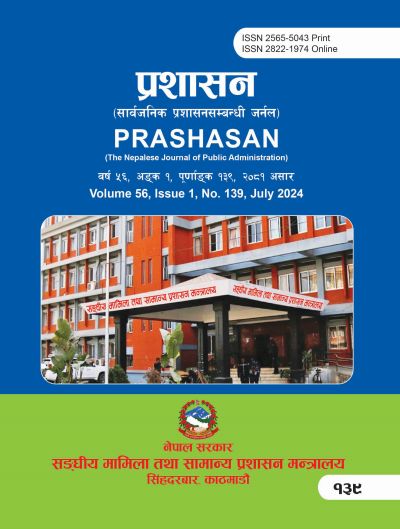Socio-Anthropological Analysis of Vulnerability Assessment and Polycentric Disaster Governance
DOI:
https://doi.org/10.3126/prashasan.v56i1.67333Keywords:
Vulnerability, Models, Collaborate, Polycentric, Disaster governanceAbstract
Vulnerability signifies deficiencies resulting from hazardous events that affect individuals, organizations, and networks within society. Assessing vulnerability aims to raise awareness among individuals in society and is estimated through indicators/indices, mostly pertaining to sociology and anthropology. Various socio-anthropological and scientific models/frameworks are utilized to assess and estimate disaster vulnerability during hazardous times. Polycentric disaster governance (PDG) can be more effective through adaptability, accountability, multiplicity (of organizations), etc., along with co-planning, co-designing, and co-implementing policies and provisions to minimize property destruction and loss of life caused by disasters, utilizing vulnerability data. Nepal's complex topographic structure and diverse practices contribute to higher vulnerability to disasters. Through PDG, both de-jure independence (decision-making) and de-facto autonomy support the achievement of SDGs targets and prosperity. In Nepal, three tiers of government and other entities are involved in co-planning and co-implementing disaster governance strategies.
Downloads
Downloads
Published
How to Cite
Issue
Section
License
- The copyright of published materials of the journal remains with Ministry of Federal Affairs and General Administration.
- The published article cannot be reproduced or copied commercially by any person or institution but it can be used non-commercially for academic, research and training purpose providing proper citation is given.




